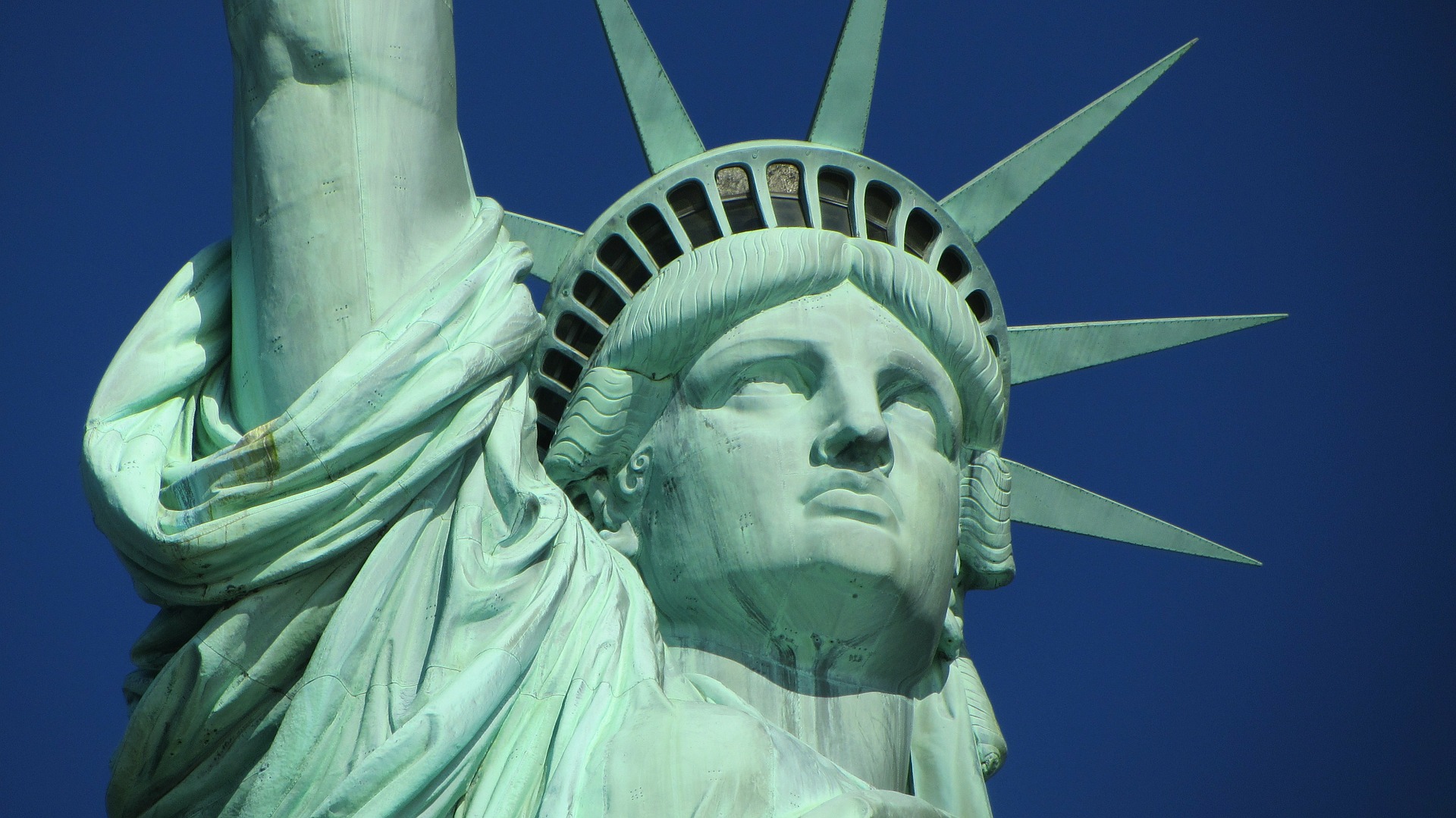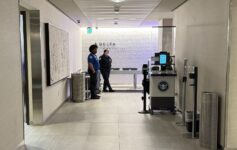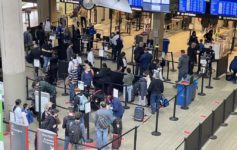
Travelers coming from 19 states must quarantine for 14 days upon entering New York, New Jersey, or Connecticut. Is such a policy legal? The answer is likely yes, though enforceability is a whole different matter.
Who Must Quarantine Upon Entering New York, New Jersey, Or Connecticut?
New York Governor Andrew Cuomo, Connecticut Governor Ned Lamont, and New Jersey Governor Phil Murphy enacted a harsh quarantine measure effective at 12:01AM on Thursday, June 25, 2020. The order requires travelers, no matter their residence, to quarantine for 14-days upon entering the tri-state area who are coming from a list of states deemed high risk. There are exemptions for essential workers.
19 sates are currently included on the list. A state is included based upon a seven day rolling average which reveals positive tests in excess of 10% or number of positive cases exceeding 10 per 100,000 residents.
- Alabama
- Arkansas
- Arizona
- California
- Delaware
- Florida
- Georgia
- Iowa
- Idaho
- Kansas
- Louisiana
- Mississippi
- North Carolina
- Nevada
- Oklahoma
- South Carolina
- Tennessee
- Texas
- Utah
The Legality Of State-Imposed Quarantine Measures During Pandemics
The right to travel freely within U.S. borders is protected by the Privileges and Immunities Clause of Article IV and the 14th Amendment (arguably by the Commerce Clause too).
The U.S. Supreme Court held traveling between states is a fundamental right in Paul v. Virginia (1869), noting a “right of free ingress into other States, and egress from them.” This is power entrusted to the states to protect.
That’s a general rule, though. Courts, including the Supreme Court, have carved out exceptions for public emergencies, including pandemics. For example, a state “may exclude from its limits … persons afflicted by contagious or infectious diseases,” Railroad Co. v. Husen (1877) Note this allows states to exclude potentially sick people, not just people who are already ill.
In Edwards v. California (1939), Justice Jackson explained the limits to freedom of travel from state to state, specifically mentioning contagion.
“The right of the citizen to migrate from state to state … is not … an unlimited one. In addition to being subject to all constitutional limitations imposed by the federal government, such citizen is subject to some control by state governments. He may not, if a fugitive from justice, claim freedom to migrate unmolested, nor may he endanger others by carrying contagion about. These causes, and perhaps others that do not occur to me now, warrant any public authority in stopping a man where it finds him and arresting his progress across a state line quite as much as from place to place within the state.”
Does a car checkpoint or customs-like health form constitute an unreasonable search and seizure, also proscribed by the U.S. Constitution? Courts have upheld checkpoints in other circumstances, like sobriety checkpoints, and are unlikely to have any issues with this sort of government invasion.
Generally, the legal standard for judging limits on interstate travel is strict scrutiny. This is the highest standard of review which a court will use to evaluate the constitutionality of a discriminatory government measure. In order to be upheld, states must demonstrate a “compelling governmental interest” and must have narrowly tailored the law or quarantine order to achieve that interest. But some courts have ruled that a lower standard applies. In either case, laws that are carefully tailored in scope and duration are likely to be deemed constitutional.
So the 14-day quarantine requirement to enter New York likely passes legal muster and could likely even be harsher, i.e. potentially even prohibiting travelers in from high-risk areas.
Traveler Sues New York Governor Over Quarantine
A traveler named Jonathan Corbett has sued New York Governor Andrew Cuomo. You can read his complaint here.
Corbett claims Cuomo’s move “has no basis in public health science.” That’s flatly false and no matter what your opinion is on the matter. Corbett’s complaint goes on to say:
The stated purpose of the quarantine was to reduce the risk of an increase of infections in New York.
However, it is entirely unclear how such a quarantine could accomplish these goals, given that New York currently has tens of thousands of infected citizens already walking around within its borders not subject to quarantine. That is, if New York already has, e.g., 50,000 people walking around with active infections, if that number increases to 51,000 because of infected incoming travelers, it is unclear to what extent, if any, that will put New York at additional risk of “un-flattening its curve.”
That’s the wrong standard. A state has a right to take measures to keep pandemic out of its state. Period.
Corbett again states:
“There is little or no discernable [sic] benefit to creating a quarantine to protect an area that is already widely infected.”
That’s a debatable point at best and one that seems poorly reasoned to me.
Corbett wants temperature checks upon arrival instead, with those without a temperature or other signs of COVID-19 discharged from any quarantine duty. That’s problematic because there are asymptomatic COVID-19 patients and a temperature check is but one indicator, hardly dispositive.
Legality Vs. Practicality
Here’s the dirty little secret, though. New York does not have the manpower or resources to keep a close eye on all who come into its borders. Thus, travelers from high-impact areas operate on the honor system.
Sure, Cuomo threatens a $2,000 fine and encourages hotel clerks to rat out their guests. He also says police will be on the lookout for out-of-state license plates.
Meanwhile, Lamont said:
“We are going to notify hotels and Airbnbs that these are the rules so that people will know what the rules of the road are and they’ll follow them.”
Yeah, good luck with that…
CONCLUSION
While I am generally uneasy with internal borders inside the United States, we do live in a federal republic with 50 states. Those states still have tremendous constitutional power to enact laws and policies that will protect their citizens. My legal research suggests that temporary controls on movement, like a mandatory 14-day quarantine, are well within the prerogatives of states during a public pandemic.
Do you think the New York quarantine requirement is legal?




It doesn’t apply to residents of those states, it applies to anyone coming from those states (including New York residents).
Yes, I tried to make that clear but it seems I failed. I’ve made it clearer.
Matthew, I note the word “temporary” in your last paragraph. To me, that’s the key word. At what point do the courts say that this has gone on long enough? If there’s no limit, temporary becomes permanent. Until there’s a cure or vaccine? There mag never be either one.
Obviously NOT constitutional.
States can NOT impose restrictions on interstate travel. Especially arbitrary and capricious ones that will only be unfairly imposed.
Secondly , Essential Workers isn’t defined and constitutional law hates restraints with lose definitions.
lastly, it’s impossibly to comply with or understand. Did you see the text of the law ? The list of restricted states can change at any time without you knowing.
Do you think flight charter companies are complying ?
States can NOT impose restrictions on free travel and trade. If they could then all states would simply require pay tolls at the borders and have migration rules.
The fact that they do it and that some people comply…. Well that’s a different story
This isn’t anything new, even during this pandemic. Texas banned New Yorkers (and others) for the better part of 3 months, so it’s only fair that they get to return the favor now that we don’t have our s*** together. As for enforcement, it can be done. Back when Texas had its quarantine, the state had State Troopers meeting every flight from a location subject to quarantine and took down everyone’s information before allowing them to leave the gate area. They even set up checkpoints at the Louisiana border to do the same for those arriving by car. And yes, they really did do random checks on people to monitor compliance.
In reality, though, I suspect the main goal here is, if someone from a banned state contracts CV in New York, and is found to have violated quarantine, the state will then throw the book at the offender.
You’re saying every single flight from a restricted area was met by state troopers? What about those who were in New York but flew to Texas, say, via Colorado or another state not on the naughty list?
Yup – every single flight from a location on the bad list (NYS, Washington state, CA, Louisiana, Miami, a few others) was met by State Troopers on arrival. (Granted, much easier to do in March and April when the volume of flights was so low.) But you did catch on to the loophole. If you flew, say, LGA to DFW via DEN, which wasn’t on the banned list, the state would have no way of knowing, and you’d be left to self-report.
That being said, my take on these rules is that the states are aiming for deterrence, and the threat of getting caught and fined is going to successfully deter a large percentage of people. Yes, those who really want to flout the rules will no matter what, but like the middle seat discussion yesterday, something is better than nothing.
In Austin they had DPS officers at all terminal exits interviewing all exiting pax. There were often moderately long exit queues. There may have been a way to circumvent it, but it wasn’t obvious to this AUS based EXP.
Interesting – stories I’d heard out of DFW and DAL was that troopers were meeting specific flights, but weren’t questioning people at the terminal exits. The AUS approach would make it harder to circumvent, though I imagine those shameless enough could just lie about where they’ve been…
I believe the complainant does have a point. It’s one thing if there was no outbreak in NY, but it is already quite widespread thrre. The probability of a person entering being infected is likely no different than for current residents. Equal protection should apply. Apply the same safety laws for all. So requiring masks in public, limiting indoor contact, etc., but singling out one group for arbitrary elimination of rights is dubious, and likely unconstitutional.
Compagnie Francaise de Navigation a Vapeur v. Louisiana Board of Health, 186 U.S. 380 would clearly state otherwise. I love how even con law profs try to state what is unconstitutional as what they want the law to be and not what the Court has said it is.
That’s not even close to the same situation. Bottom line is that the virus is already well established in NY, so quarantining new arrivals from other states does nothing. It’s cute that a you leftists are pretending to care what the law is anyway, since they just pick and choose which ones they will follow, and who they will prosecute.
You know how I know you never read Compagnie? Because you think the that New Orleans didn’t ALREADY have an outbreak of Yellow Fever when the Britannia docked. The court affirmed that regardless, the health department could quarantine against any new arrivals, even those who have been tested as healthy, because they wanted to lessen the spread of a virus. It’s DIRECTLY on point. As Justice White said in the majority, “You cannot argue that the lawful powers of government which the Constitution has conferred may not be exerted without bringing about a violation of the Constitution.” But please, explain to me, as a lawyer who is admitted to the Supreme Court bar, how the controlling case on the application of quarantines is not applicable because your extensive studies for your GED in law have taught you something that 118 years of Supreme Court justices have missed. Drop a wisdom bomb on me, oh great con law warrior!
https://www.theonion.com/area-man-passionate-defender-of-what-he-imagines-consti-181957114
WR2, One of the links in my story above referenced the Campagnie case, which is controlling here.
We can question the wisdom of such measures, but I see no legal grounds upon which to hold them unconstitutional.
Trumpettes like @WR2 are allergic to facts. They will always parrot Dear Leaders talking points
@WR2 why did you go and have to make this political? Your attitude is an example of what is wrong with America these days.
Although I think you have it about right on the question of legality (yes, of course it’s legal), I think you are completely missing the point: is going there the right thing to do?
Given what’s taking place right now in many states (say, Texas), is it responsible to travel from one of those hot-spots to someplace like New York (where they’ve clearly said, don’t come here unless you’re going to self-quarantine)?
I know it’s not a popular question to ask (“is this the right thing to do?”) and today’s standard is actually “can I get away with it?”
I would presume that if an impacted person were to go to NY in the current environment, it would be for good reasons and not to just check out the pizza. Entry after quarantine is allowed, so only someone who could afford the extra downtime would be able to do this without breaking any laws or requirements. That said, the reality is that there is a pandemic and the state is within its rights to deny temporarily insist on a 14 day quarantine to help reduce the risk of further spread.
Where’s your fellow writer @Kyle Stewart on this?? Conspicuously crickets, how come? He
was bashing Hawaii’s 14 day quarantine/Constitutional rights a month ago and now…? Come out to play K.Stewart
Keep in mind that the SCOTUS often splits 5-4. Just because Kyle may see this issue differently from me doesn’t mean he’s wrong or I am right. His day is Sunday and he is free to tell me where I went wrong here if he so chooses.
Did you mean this Sunday? Kinda hard to get cold feet in the heights of summer. Fully expecting clicks are for kids article bashing NY CT, NJ. / 14 day quarantine. If not, W E A K
Whatever the legality, WHO was pretty clear in its belief that after the initial phase, travel restrictions don’t help much. New Zealand, say, absolutely needs the restrictions and quarantine to keep its baseline of zero cases. But with thousands of cases in NYC and other states, and self-selecting travelers not likely to be symptomatic, I doubt travelers from one state to another (except Alaska/Hawaii) would be The Thing that ruins the virus situation.
These restrictions just reinforce an us-vs-them mentality and lead to state residents being less likely to take responsibility for precautions because ‘We’re stopping the cases from getting in’… … …
Matthew, I think it’s unconstitutional — because it’s capriciously “enforced” — and it’s not supported by public health. Until this most recent crisis, the WHO put out paper after paper arguing quarantines and travel bans are ineffective.
These state-based travel bans are also a bit pathetic for the “United” States of America. Do Americans want to live in one country or not? Because right now it’s trickier to travel to much of the U.S. than it is to move across the EU.
The problem is the rule is arbitrary and without merit. You can site all the cases of yesteryear but those should be overturned. After all you wouldn’t argue we can regulate child labor or you have the right to yell fire in a crowded theater, but the Supreme Court now says you can.
If NY has a standard but NJ or CT does not have the same standard, how does that protect anyone? I can go into NJ or CT infect them and their citizens are free to enter NY and continue the infection?
The mandate is overbroad and as others stated provided vague and ever changing guidelines.
When these same state governments set up checkpoints, require phone numbers, demand identification information, travel and lodging information, to prevent the movement of MS-13 and other criminals illegally in the country, then and only then would I think of complying with this.